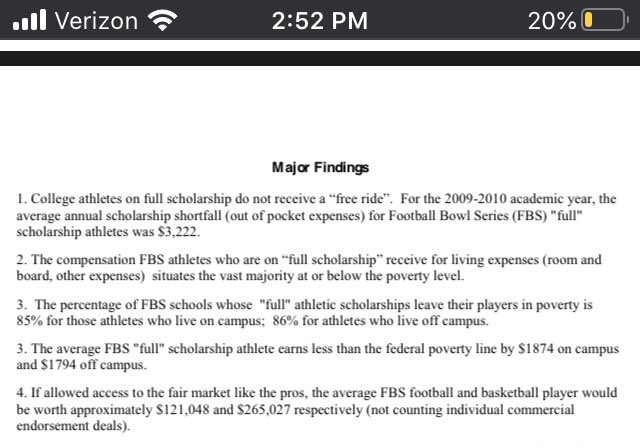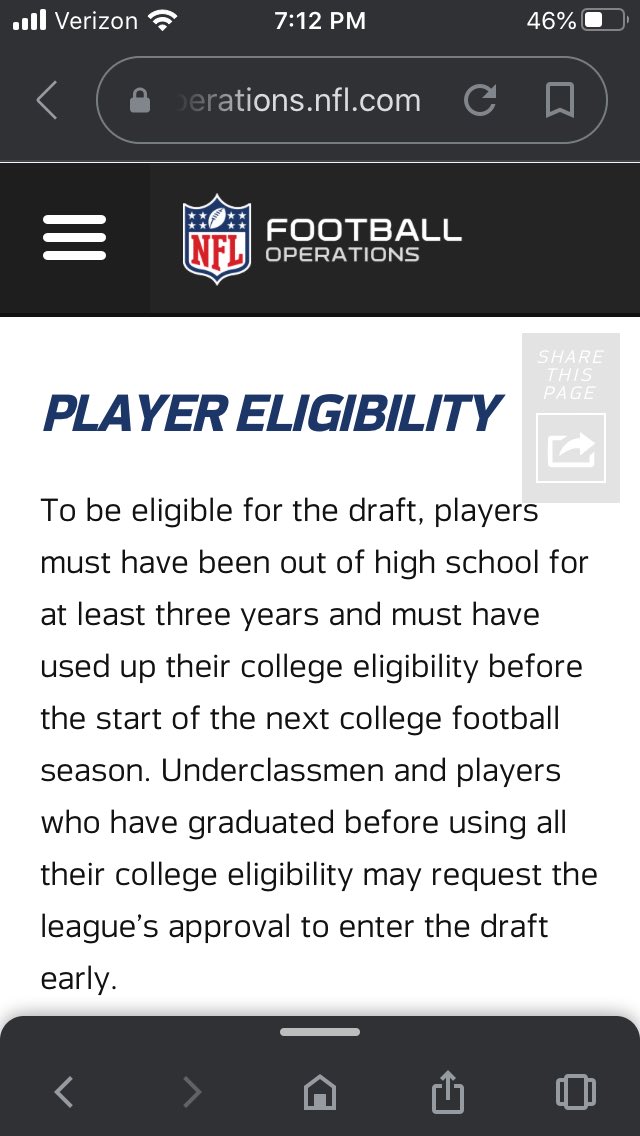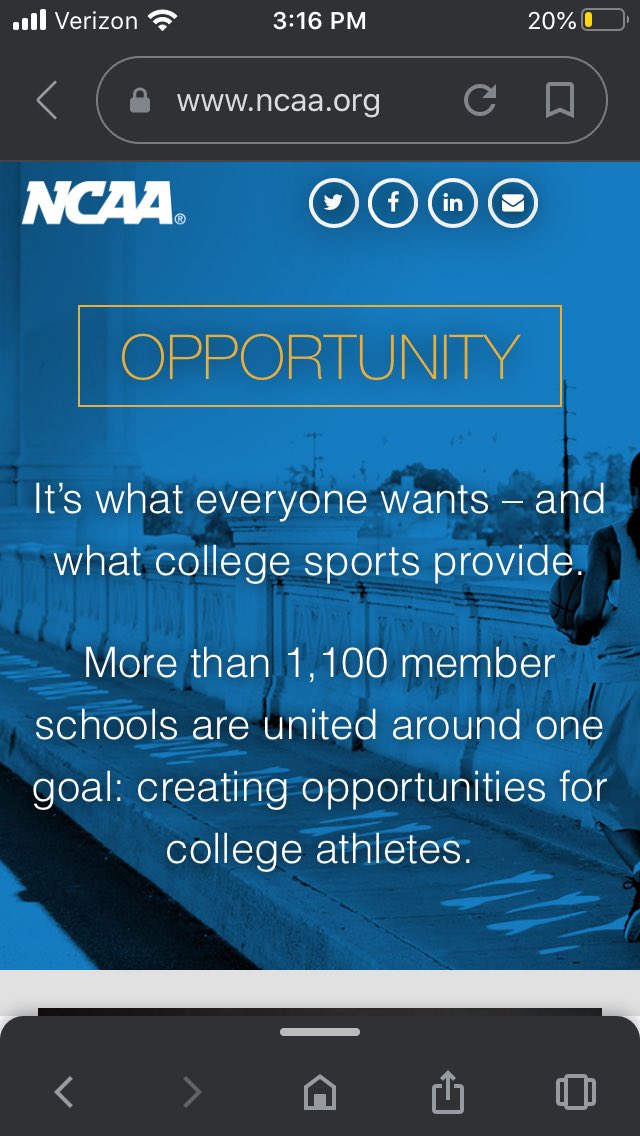Lots of folks have been asking me why college football players aren’t just refusing to practice/play since their universities/the @NCAA obviously don’t value their health. I love athletic activism, but there are lots of logical reasons why most athletes aren’t protesting now:
1.) NCAA scholarship policies. A coach can yank a scholarship for virtually any reason per NCAA guidelines. If athletes don’t participate in voluntary workouts, they give athletes hell for it. And not training in the offseason shows in games, which threatens athletes’ finances.
THIS is one of the many problems associated with athletic amateurism. Coaches have way too much control over their athletes bc athletes can’t earn money elsewhere. Most athletic scholarships are NOT four-year deals, contrary to popular belief. Four-year full rides are a myth.
Another myth in college sports is that P5 athletes are living the high life. Per @NCPANOW, over 85% of college athletes live at or below the poverty line. Which makes it all the more problematic that their millionaire coaches have so much financial influence over them.
That’s also why football players aren’t walking out of practices right now. They’re risking their health in many ways (COVID, concussions, injuries) bc they can’t afford not to. The mindset for plenty of athletes is: get into college, compete, get the degree, get out of poverty.
And if 85% of them live in poverty on a scholarship, imagine how dire those situations would be without any financial aid. Scholarship=livelihood. These athletes are surviving a system that’s pitted against them.
Playing a D1 sport often isn’t a choice. It’s a necessity.
Playing a D1 sport often isn’t a choice. It’s a necessity.
2.) College coaches own their athletes. We all watched the Chuba Hubbard video. Hubbard didn’t say a word—Mike Gundy was speaking through him. Coaches actively censor their athletes all the time, and I guarantee that’s happening at the programs that have stayed silent so far.
(Sidenote: there are no NCAA policies that ban coach censorship or any kind of abuse of athletes. College athletes are dual property of their coaches and the NCAA)
3.) The legality of a lawsuit about all of this is over my head, but I’m not sure how much legal leverage college athletes have. They’re not employees, so a worker endangerment case would likely be off the table. College athletes can’t unionize, either, thanks to the NCAA.
And lawsuits aren’t exactly a walk in the park. They’re risky, lengthy, and expensive (but thank God for the sports lawyers who represent college athletes because it is much-needed work and puts pressure on the NCAA).
4.) There are simply no other alternatives for college football players if they want to go pro. The NFL requires players to be out of high school for a minimum of three years, or to obtain approval from the league.
Even if there wasn’t an age minimum, lots of college football players are undersized and need more experience to safely play in the NFL. Alternative college leagues are developing, but the NCAA basically acts as the NFL’s minor league with a (shady) side of education.
Another side note: With minor league baseball on life support right now, and the NCAA fighting for antitrust immunity, I wouldn’t be surprised if COVID permanently alters this landscape for baseball as well. Maybe the NCAA will become the new MiLB (hopefully not).
5.) And finally, lots of people aren’t talking about this, but athletic drive can be a downright deadly force—college athletes get tunnel vision when we set our minds to a goal.
I was like that as an athlete. I wanted to win. I wanted a title. I did everything in my power to get the job done, including silence my voice and destroy my body. It’s a scary mindset to have, and nearly inescapable when coaches encourage it.
The NCAA knows this—it’s why they brand college sports as an “opportunity.” And I’d bet athletic drive and coach coercion are significant factors for some of these athletes and their decision to stay quiet and play through COVID.
Basically, there are lots of reasons why college athletes aren’t organizing right now. And although I agree that college athletes are super powerful, and that they should protest, I understand why they’re not.
But I also think that it’s the universities that should be taking the initiative and protecting athletes so these 18-22 year-olds don’t have to decide between their scholarship or their personal safety. But that’s life in the NCAA for you. And the NCAA doesn’t care.
And if you’ve made it this far, I have to add: no matter what the NCAA says, athletic work is labor, and college athletes are laborers/university employees. They deserve financial security and workplace protections, and COVID is revealing exactly why.
As hellish as COVID has been, I hope it changes the way we carry out college sports in the U.S. But watching the way universities are responding, its clear that many want to resume business as usual. And it’s infuriating for those of us who care about college athletes as people.

 Read on Twitter
Read on Twitter




